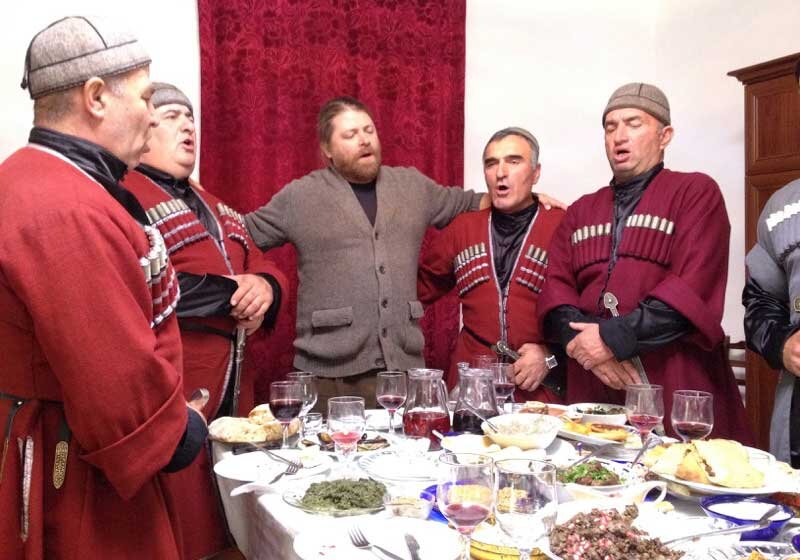Tvalta Sichinava reports in from Tbilisi, Georgia
Let's start with the status of international flights into Georgia, what's the situation?
Tvalta: As of February 1, 2021 Georgia has reopened international flights and is allowing anyone who is fully vaccinated to enter the country by plane. Non-vaccinated citizens of select countries (including EU countries and the USA) are now allowed to enter Georgia by plane without a quarantine requirement. These travelers must present a negative PCR test taken within the 72 hours prior to their arrival to Georgia and must take a second PCR test at their own expense on their third day in the country.
What's new in Georgia?
Tvalta: Calling all digital nomads! At the end of August, 2020 the Georgian government announced a visa-free program, Remotely From Georgia. This program is designed to attract modern travelers from 95 countries who will be able to work remotely from Georgia for between six months to one year.
After meeting the current entry requirements (including unconditional entry for vaccinated travelers from Feb 1, 2021 and an expanded list of countries requiring testing without quarantine), remote-workers are free to explore all that Georgia has to offer. And we’re not the only ones who can’t say enough good things about this little gem of a country.
Georgia has been working hard to develop it's tourism industry during these challenging times. This short video provides some amazing footage of our small country and some comments by the head of the Georgian National Tourism Office.
Hotel openings didn’t slow down in 2020. In Tbilisi, there is the new 4-star Vera Hills Boutique Hotel in the Vera District — a less touristed area that is close to the major tourist sites and some of the best restaurants and bars in the city. In the Chugureti District, the modern 3-star Ornament Boutique Hotel provides a quieter option.
Near Telavi, in the wine region of Kakheti, the enchanting Vazisubani Estate has recently opened to guests. This luxury retreat is located in the former home of a 19-th century Georgian nobleman on a lavish countryside estate with award-wining vineyards.
I am personally excited about a new property in the remote Tusheti Mountains called Hotel Nabadi. It is located in the village of Omalo, an area that has lacked hotels due to its remoteness and difficulty to access. I traveled to Tusheti twice this season and loved every minute of it. This is still the most wild part of Georgia but the improvements in infrastructure will allow an increasing number of visitors to experience it.
Georgia has seen a lot of growth in the past few years, and the future for tourism remains bright. In 2019, 9.4 million international visitors came to Georgia – not bad for a country with a population of approximately just under 4 million!
Finally, the Marriott Tbilisi, one of our favorite properties in Tbilisi and one used often on MIR programs, has completed its long-anticipated renovation. Check out this virtual tour of the property and learn more about the protocols Marriott Tbilisi has put in place.
Other worthwhile updates:
A new botanical park opened mid-July that we’re excited to include in future itineraries that include the Black Sea coast. Some of you may have heard about the Tbilisi Botanical Gardens. The new Shekvetili Dendrological Park will be another highlight for those interested in flora and fauna. Guests can stroll through the roughly 150-acre garden to learn more about thousands of species of local and world flora and over 50 bird species.
Hot air balloon rides are now available over Tbilisi! You cannot beat aerial views of our city!
The modern and much anticipated Bolnisi Museum was unveiled on Museum Day in May 2020 by the Georgian National Museum. A day trip from Tbilisi, this permanent exhibition features Bronze Age cultures, early Christian architecture and the history of the first hominids (the discovery very close by at Dmanisi of five 1.8 million-year-old H. erectus skulls have made the Dmanisi site crucial to the study of human evolution). A special exhibition hall is dedicated to the history of the German population who emigrated from Southern Germany to Georgia 200 years ago. A number of German institutions and the University of Toronto collaborated with Georgian colleagues on this exhibition celebrating the multicultural history of a region where Armenians, Azerbaijanis, Ossetians, Greeks, Russians, Germans, and others lived with Georgians.
We were very proud to host the World Tourism Organization’s (UNWTO) Executive Council 112th session, that took place September 15-17, 2020 in Tbilisi. The UNWTO is the United Nations agency that promotes responsible, sustainable and universally accessible tourism. Georgia is the first country outside of Spain to have hosted this prestigious event attended by delegates from 24 countries.
How is the Georgian economy?
Tvalta: Georgia remains a very good value destination - the main riches of our country come from the land itself.
An incredible array of natural wonders including three of Europe’s highest peaks, the Black Sea citrus plantations, and the frescoes tucked into caves located in semi-desert landscapes.
Haunting polyphonic singing that will give you shivers.
Natural, organic wine made in a traditional way, in qvevri – a continuation of Georgia’s 8000 year unbroken tradition of winemaking. UNESCO added this tradition to the intangible cultural heritage list in 2013.
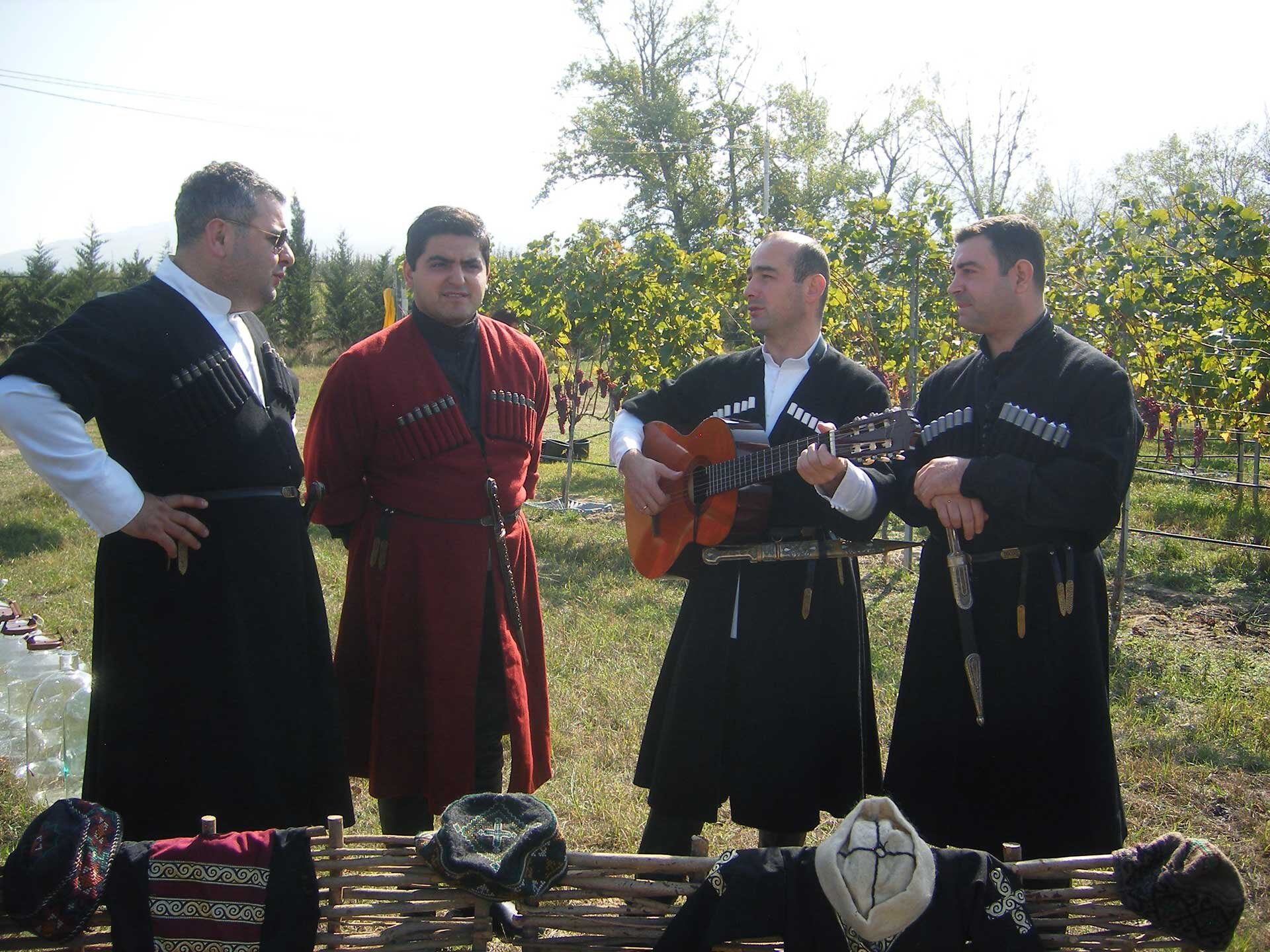
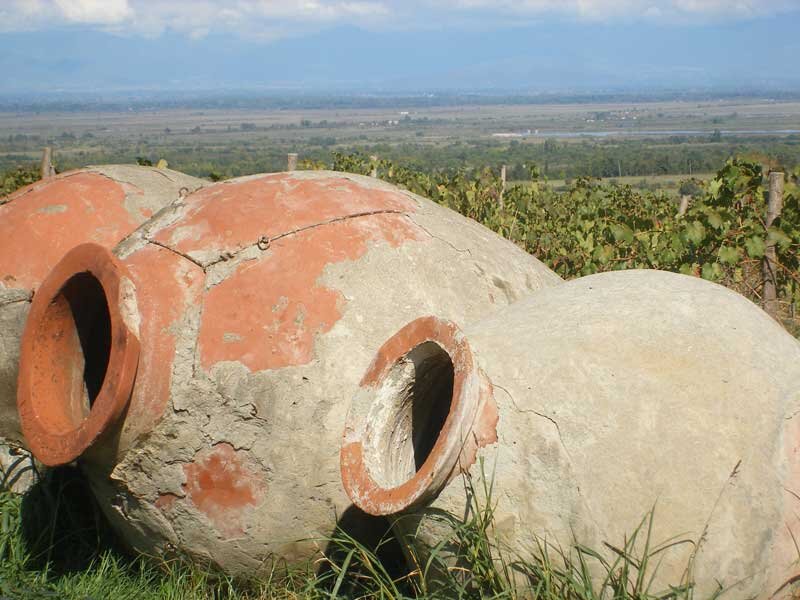
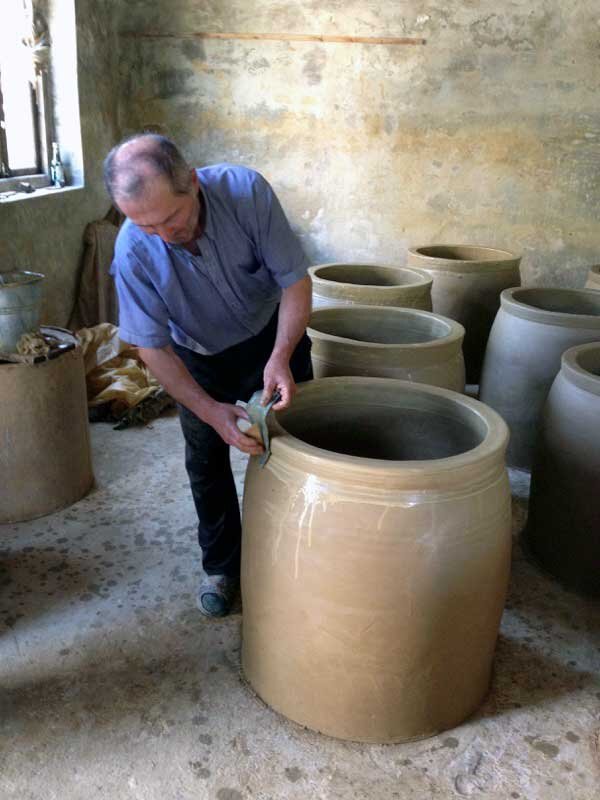
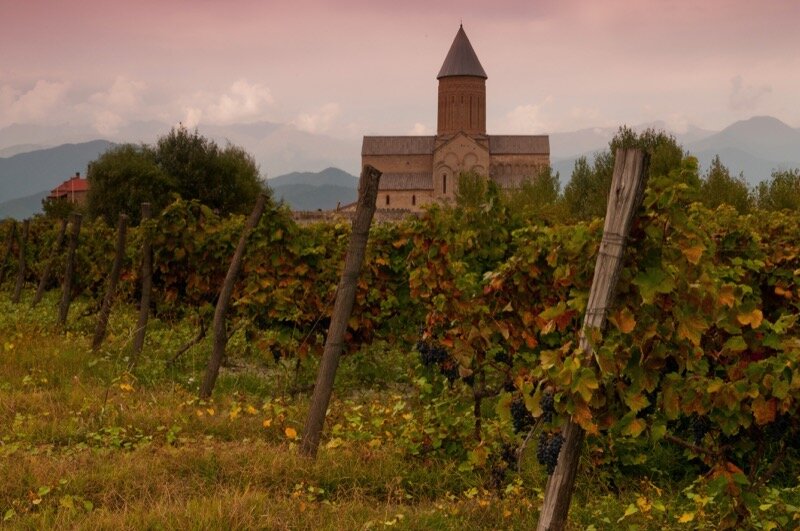
What's the first dish or beverage that you like to introduce visitors to?
Tvalta: Well, that’s a challenging question for a Georgian to answer, as our table traditions of food and wine are the centerpiece of our hospitality. Our style is to have a ‘Georgian table’ overflowing with many dishes ranging from chicken in crushed walnut sauce, to puff pastries, to little meat dumplings called khinkali.
While the most well-known dish is probably khachapuri, a savory cheese pie like you’ve never tasted, the dish we most like travelers to taste is chakapuli, traditionally made with lamb, but we prefer it with mushrooms – especially when locally foraged. This Georgian stew features tarragon leaves, pepper, coriander, dry white wine, garlic, green onions, and most importantly tart cherry plums – red and green – that are a staple in Georgian cooking.
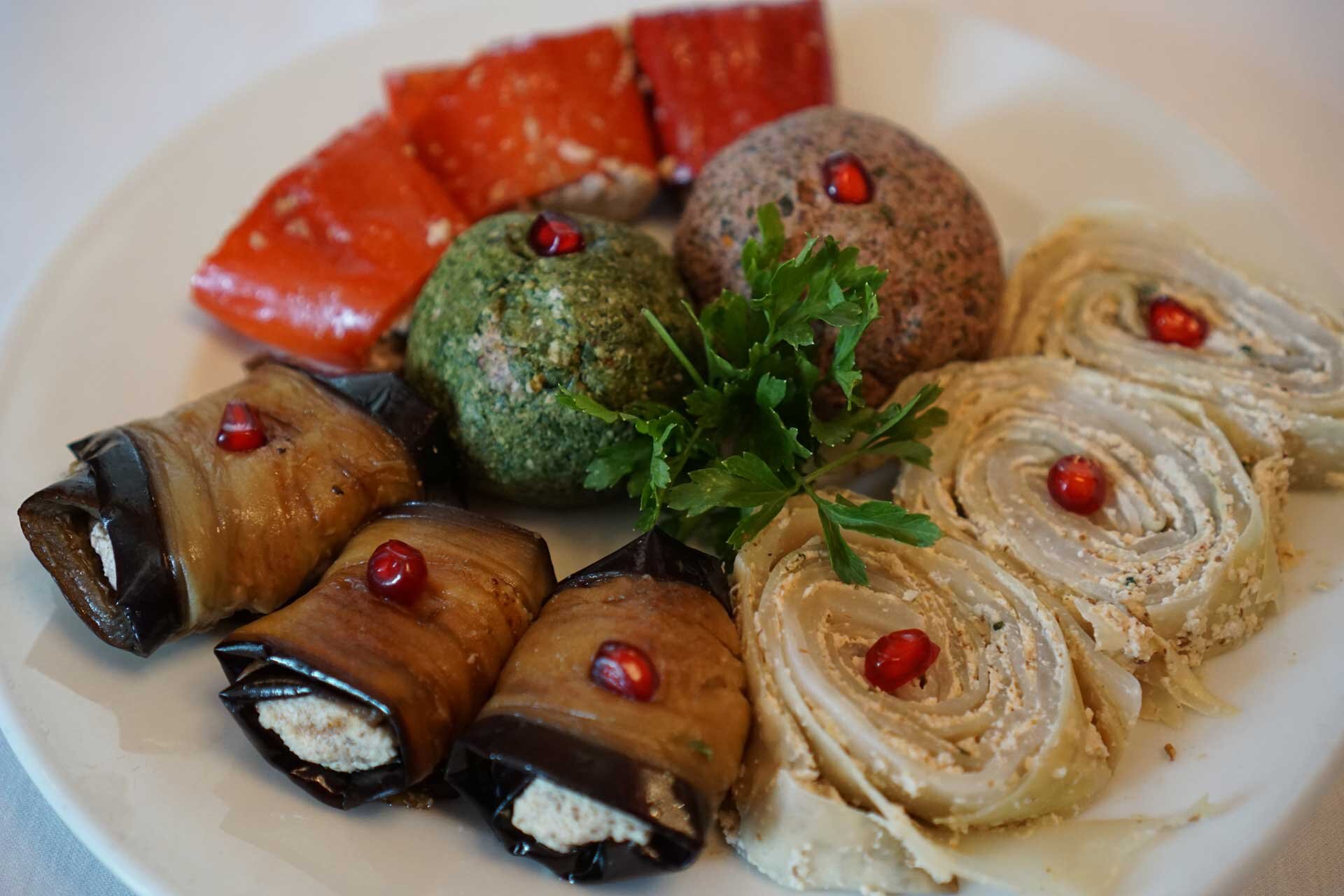
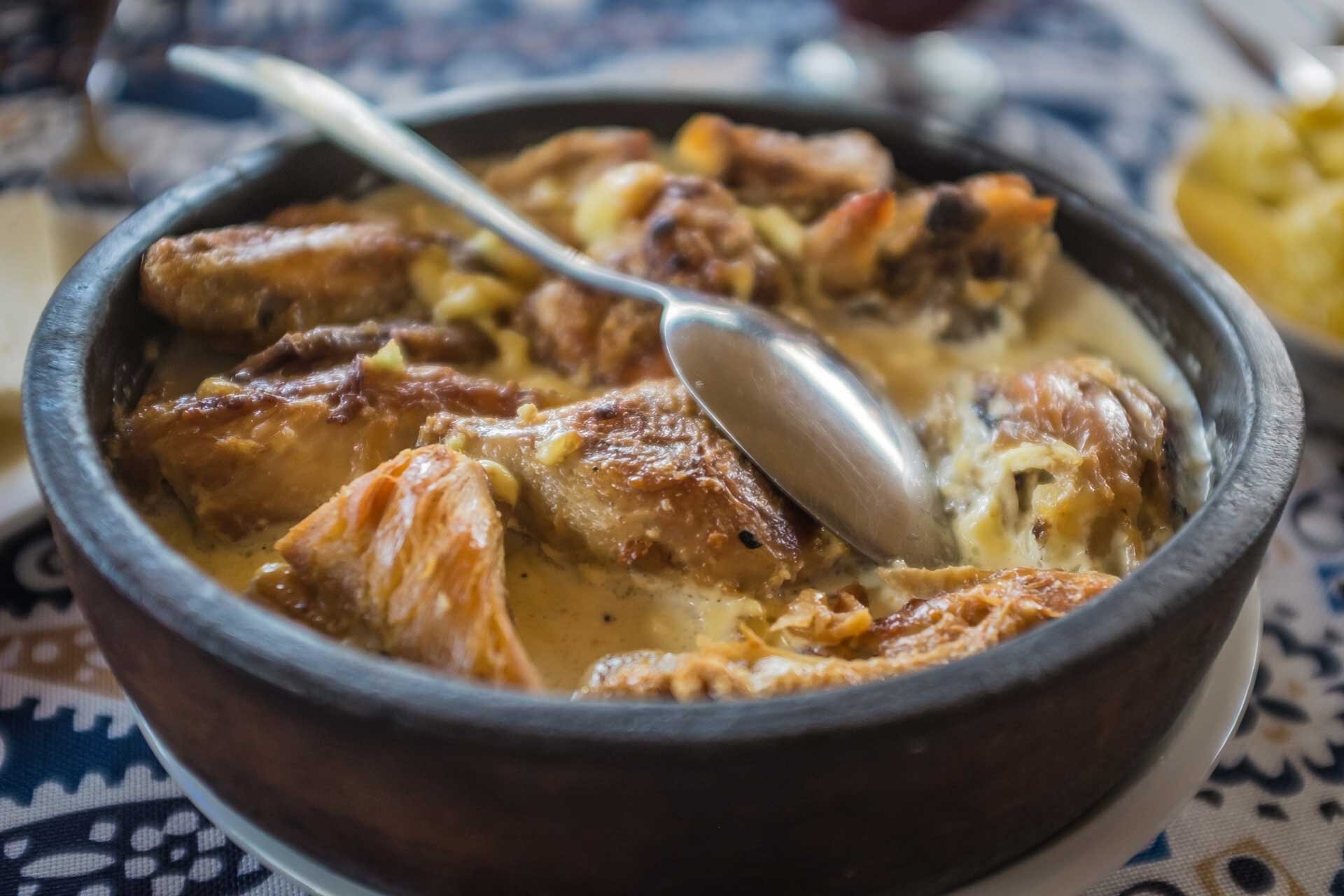

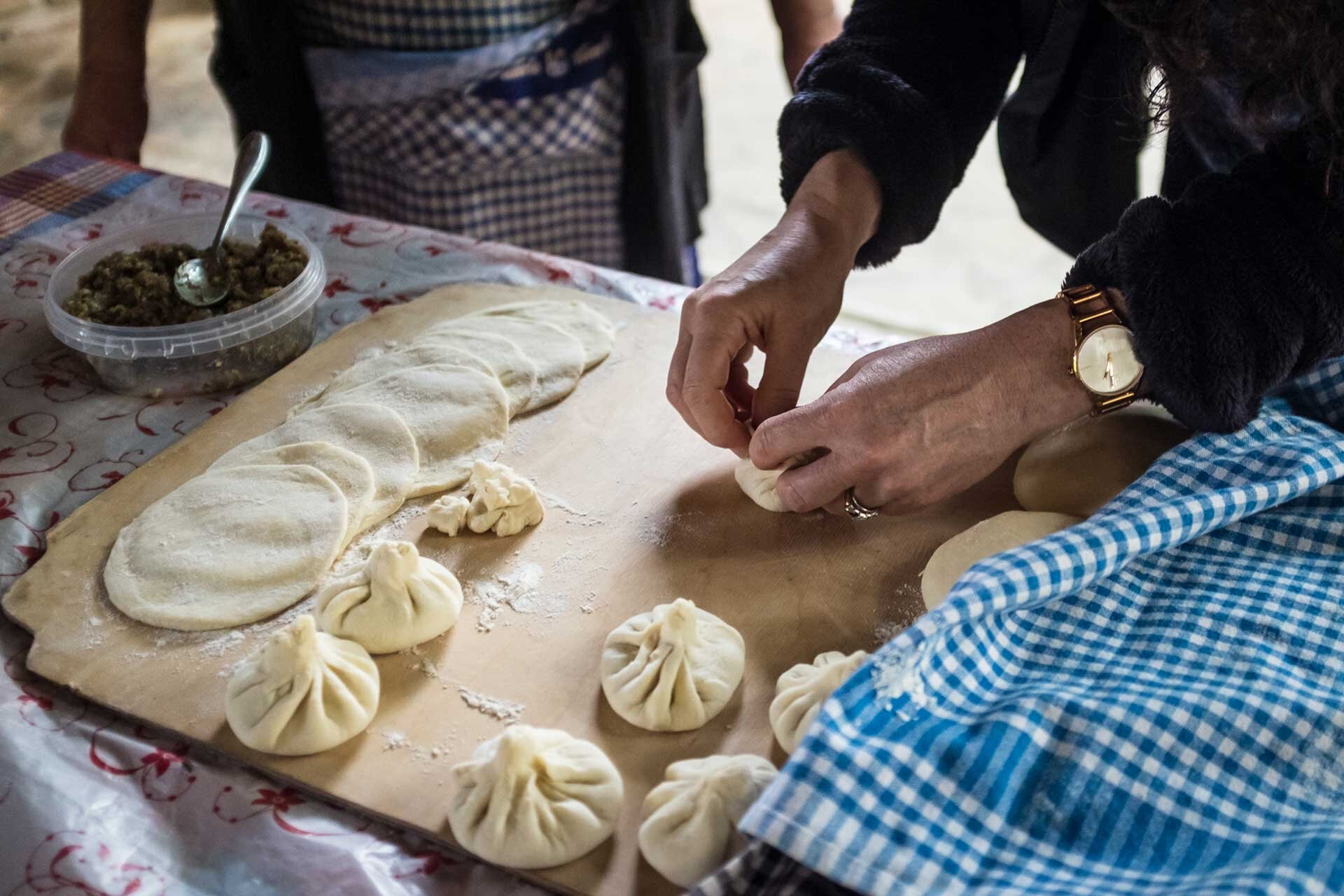
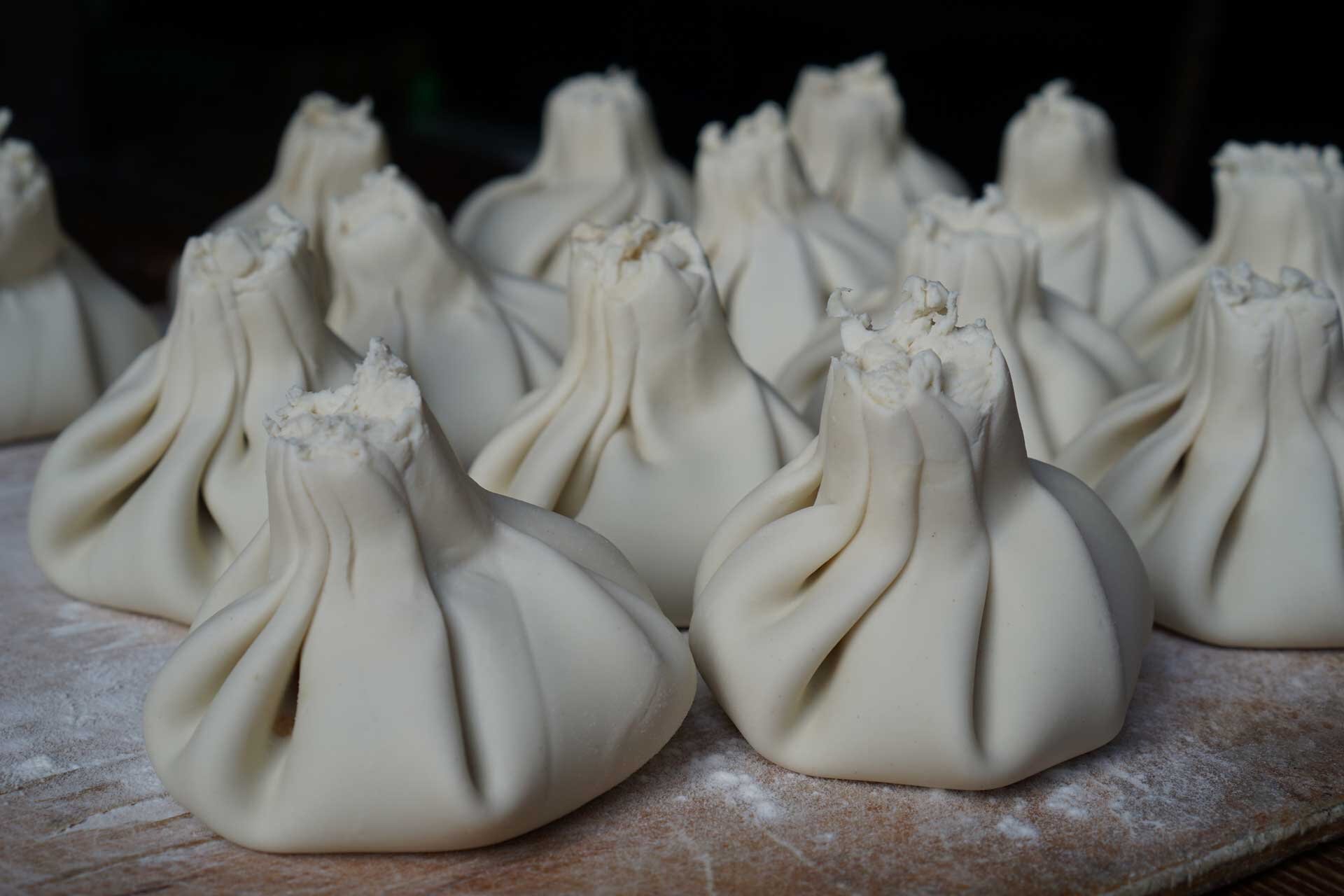
We can’t think of a better pairing for Georgian specialties than a long skin contact Rkatsiteli natural wine. Rkatsiteli, translated from Georgian as ‘red stem,’ is one of Georgia’s ancient grape varieties used to produce white wine. In the traditional Georgian wine-making method dating back to 6000 BC of using clay-pots called qvevri buried in the ground, the stems are tossed right in with the grape skins and juice and naturally fermented.
We’d follow a great meal accompanied by Rkatsiteli with the Georgia's favorite nightcap: chacha. Enjoyed at tables throughout the country, an evening in Georgia wouldn’t be complete without this strong spirit – a distilled beverage made after the wine from the grape residue.






